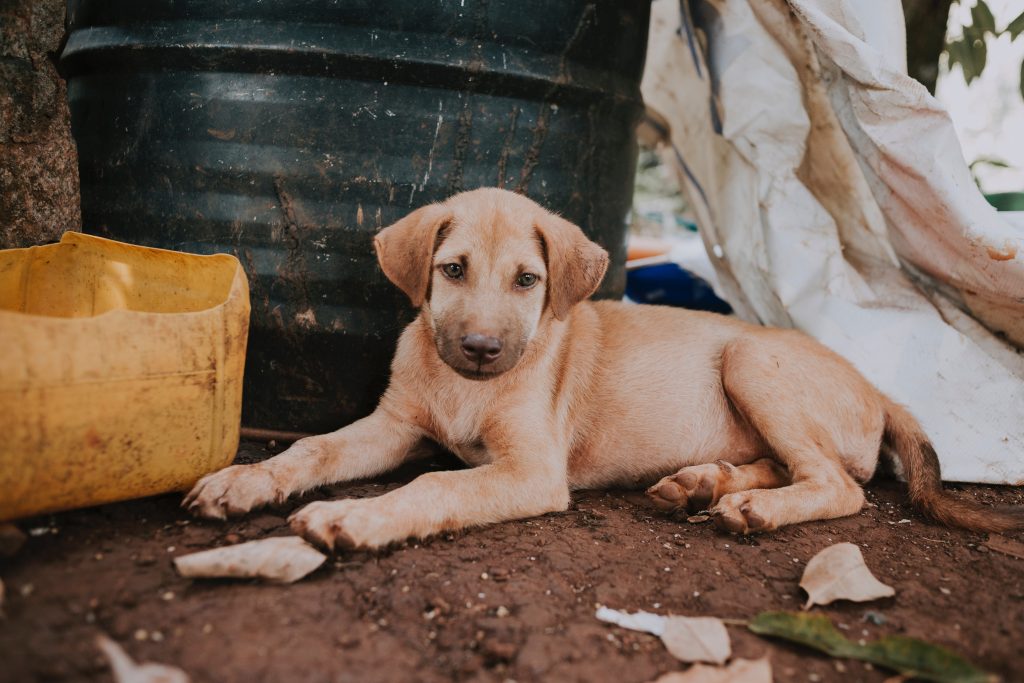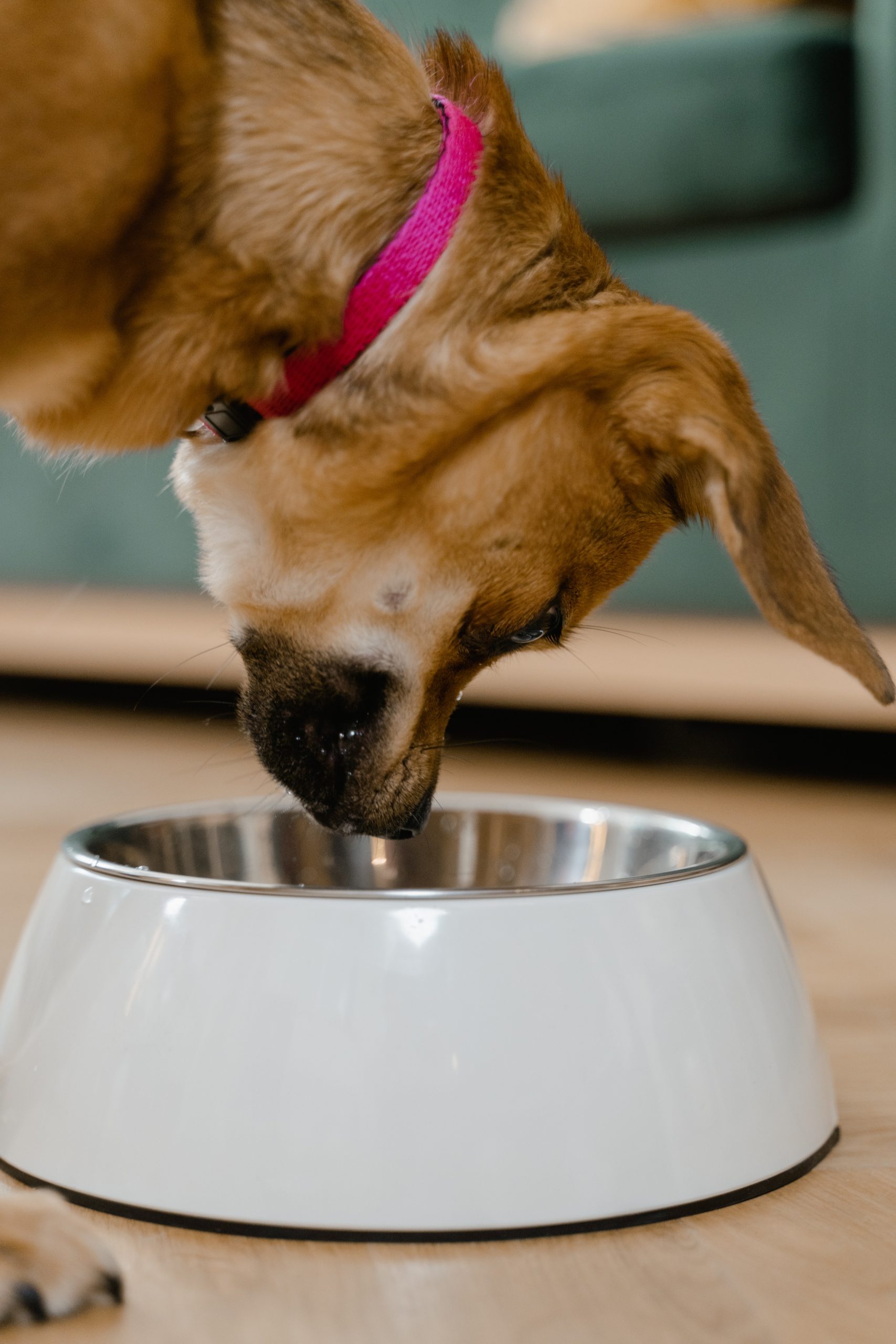One of the questions we get most often asked is the age old question of why do dogs eat poop? The following is a blog post about the science, history, and delicacy of why do dog eats poop. More than you’d ever like (or need) to know…
The Science Behind Why Dogs Eat Poop
The phenomenon of dogs eating their own feces, known as coprophagia, is a behavior that has puzzled pet owners and veterinarians alike. While the exact cause of this behavior is not known, there are several theories that attempt to explain why dogs may engage in this behavior.
One theory suggests that coprophagia is a remnant of the dog’s wild ancestors, who would consume their own feces in order to obtain additional nutrients. In the wild, dogs would consume the feces of other animals in order to obtain additional nutrients, and this behavior may have been passed down to domesticated dogs.
Another theory suggests that coprophagia is a result of a nutritional deficiency. Dogs may consume their own feces in order to obtain additional nutrients that are missing from their diet. This theory is supported by the fact that dogs who are fed a balanced diet are less likely to engage in coprophagia.
Finally, some experts believe that coprophagia is a result of stress or anxiety. Dogs may consume their own feces in order to self-soothe or to cope with a stressful situation. This theory is supported by the fact that dogs who are under stress or who suffer from anxiety are more likely to engage in coprophagia.
While the exact cause of coprophagia is not known, it is important to note that this behavior is not necessarily a sign of poor health or a nutritional deficiency. In most cases, coprophagia is simply a behavioral issue that can be addressed with proper training and management.

How to Stop Your Dog from Eating Poop
If you have noticed that your dog has been eating poop, it is important to take steps to stop this behavior. Eating poop, also known as coprophagia, is a common problem among dogs and can be caused by a variety of factors. Fortunately, there are several strategies you can use to help prevent your dog from eating poop.
First, it is important to determine why your dog is eating poop. If your dog is eating the feces of other animals, it may be due to a nutritional deficiency. If this is the case, you should consult your veterinarian to determine if your dog needs a special diet. If your dog is eating its own feces, it may be due to boredom or anxiety. If this is the case, you should provide your dog with more mental stimulation and exercise.
Once you have determined the cause of the behavior, you can take steps to prevent it. If your dog is eating the feces of other animals, you should clean up any feces in your yard as soon as possible. You should also keep your dog on a leash when outside to prevent it from eating the feces of other animals. If your dog is eating its own feces, you should make sure that its living area is clean and free of feces. You should also provide your dog with plenty of toys and activities to keep it entertained.
Finally, you can use taste deterrents to discourage your dog from eating poop. These products are available at most pet stores and can be sprayed on the feces to make it unappealing to your dog.
By following these steps, you can help prevent your dog from eating poop. However, if the behavior persists, you should consult your veterinarian for further advice.
The Health Risks of Dogs Eating Poop
The health risks associated with dogs eating their own or other animals’ feces are numerous and should not be taken lightly. While it may seem like a harmless behavior, it can lead to a variety of health issues for your pet.
The most common health risk associated with dogs eating poop is the potential for them to contract parasites. Parasites such as roundworms, hookworms, and whipworms can be found in feces and can be transmitted to your pet if they consume it. These parasites can cause a variety of symptoms, including vomiting, diarrhea, weight loss, and anemia. In some cases, they can even be fatal.
Another health risk associated with dogs eating poop is the potential for them to contract bacterial infections. Bacteria such as E. coli, Salmonella, and Campylobacter can be found in feces and can be transmitted to your pet if they consume it. These bacteria can cause a variety of symptoms, including vomiting, diarrhea, fever, and abdominal pain. In some cases, they can even be fatal.
Finally, dogs that eat poop may also be at risk for developing pancreatitis. This is an inflammation of the pancreas that can be caused by the ingestion of certain bacteria or parasites found in feces. Symptoms of pancreatitis include vomiting, abdominal pain, and loss of appetite. In some cases, it can even be fatal.
It is important to note that these health risks are not limited to dogs that eat their own feces. Dogs that eat the feces of other animals can also be at risk for these health issues. Therefore, it is important to discourage your pet from eating any type of feces, regardless of the source.
In conclusion, the health risks associated with dogs eating their own or other animals’ feces are numerous and should not be taken lightly. If your pet is exhibiting this behavior, it is important to take steps to discourage it and to seek veterinary care if any symptoms of illness arise.
Common Reasons Why Dogs Eat Poop
Coprophagia, or the consumption of feces, is a common behavior among dogs. While it may be distasteful to humans, it is a normal behavior for dogs. There are several potential reasons why a dog may engage in this behavior.
One of the most common reasons is nutritional deficiency. Dogs may eat their own or other animals’ feces if they are lacking certain nutrients in their diet. This behavior is more common in puppies, as they are still learning about their environment and may not be getting the proper nutrition they need.
Another potential cause of coprophagia is stress or anxiety. Dogs may eat their own or other animals’ feces as a way to cope with stress or anxiety. This behavior is more common in dogs that are not receiving enough mental stimulation or are not getting enough exercise.
In some cases, coprophagia may be a sign of medical issues. Dogs may eat their own or other animals’ feces if they have a gastrointestinal disorder or a metabolic disorder. If your dog is exhibiting this behavior, it is important to take them to the vet to rule out any underlying medical issues.
Finally, some dogs may simply find feces to be an appealing snack. This behavior is more common in puppies, as they are still exploring their environment and may find the taste of feces to be interesting.
No matter the cause, coprophagia is an unpleasant behavior that should be addressed. If your dog is exhibiting this behavior, it is important to take them to the vet to rule out any underlying medical issues. Additionally, it is important to ensure that your dog is getting the proper nutrition and exercise they need to stay healthy and happy.
How to Discourage Your Dog from Eating Poop
If you have noticed that your dog has been eating poop, it is important to take steps to discourage this behavior. Eating poop, also known as coprophagia, is a common problem among dogs and can be caused by a variety of factors. Fortunately, there are several strategies you can use to discourage your dog from eating poop.
First, it is important to determine why your dog is eating poop. If your dog is eating the feces of other animals, it may be due to a nutritional deficiency. If this is the case, you should consult your veterinarian to determine if your dog needs a dietary supplement or a change in diet. If your dog is eating its own feces, it may be due to boredom or anxiety. If this is the case, you should provide your dog with more mental stimulation and exercise.
Once you have determined the cause of the behavior, you can take steps to discourage it. One of the most effective strategies is to clean up any feces in your yard or home as soon as possible. This will reduce the chances of your dog eating it. Additionally, you can try feeding your dog a high-quality diet that is rich in fiber. This will help to reduce the urge to eat feces.
You can also try adding a bitter-tasting substance to the feces. This will make it unappealing to your dog and discourage them from eating it. Finally, you can try using a leash and collar to prevent your dog from accessing the feces.
By following these steps, you can help to discourage your dog from eating poop. However, if the behavior persists, it is important to consult your veterinarian for further advice.


0 Comments